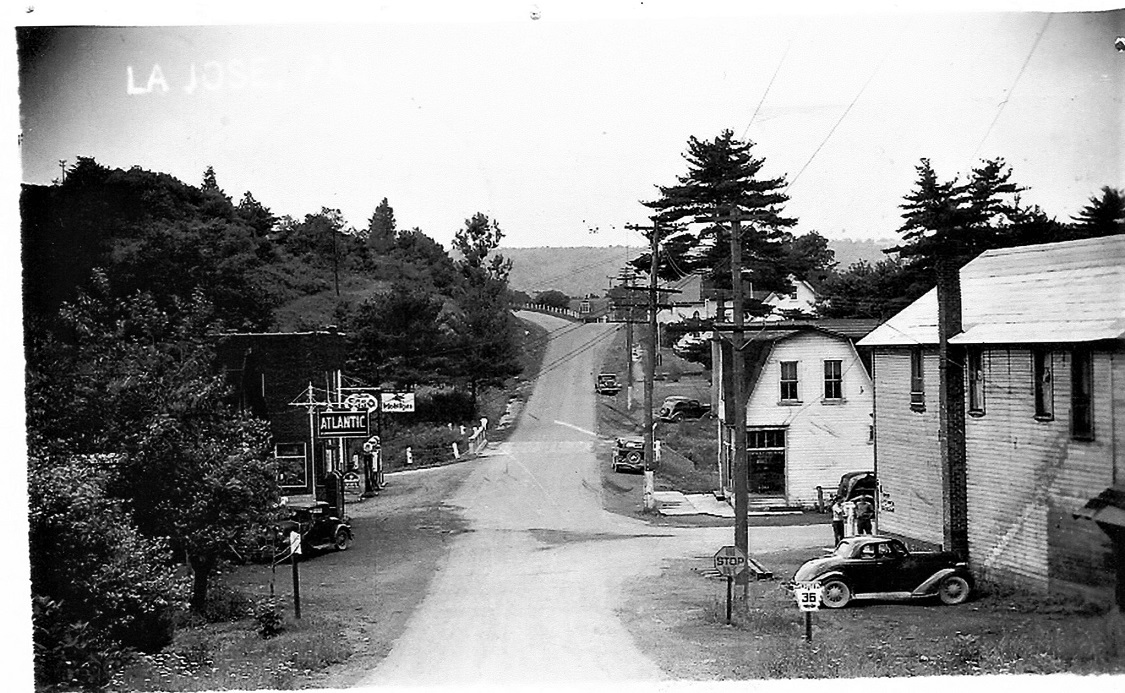The town of LaJose, named for one-time lumbering business owner George Jose, is officially known as Newburg Borough. It sits surrounded by Chest Township in the southwestern part of Clearfield County.
Its land area along Chest Creek is sizable, but its population has always been small. LaJose also lies along the rather busy Pennsylvania Route 36, which connects Westover to Mahaffey.
The landmark LaJose Hotel still stands, as does a modern post office building and both a Methodist and a Baptist Church building.
The photo shows Route 36, as it turns right adjacent to long gone older buildings, one of which is where Poeta’s Service Station once stood.
The photo is more historically unique than, perhaps, first realized. The two gas stations, on the left side of the 1939 photo, had their pumps placed close to each other and appeared to have sold three, different brands of gasoline.
All three brands shown, Atlantic, Mobil and ESSO once made up the infamous John D. Rockefeller’s gigantic monopoly, known as the Standard Oil Company. It was an early 20th century conglomerate that controlled oil prices and all but eliminated its competition.
The federal government, during the Progressive Era, brought an antitrust suit against Standard Oil. The Supreme Court ruled in May of 1911 that Standard Oil was guilty of “restraint of trade” and ordered it broken into smaller competing entities.
It looks, in the photo, that the three separate oil and gasoline companies, once part of the same monopoly, had their gas pumps standing practically side by side.
Throughout the decades since the break-up, dozens of oil companies were formed or merged that are, in effect, descended from Standard Oil.
Of the three shown, Atlantic was merged with Richfield to form Arco. ESSO became Exxon and was later merged with Mobil to become the present Exxon Mobil.
A quiet day in LaJose, 80 years ago, gives a portrayal of one facet of U.S. economic history.




